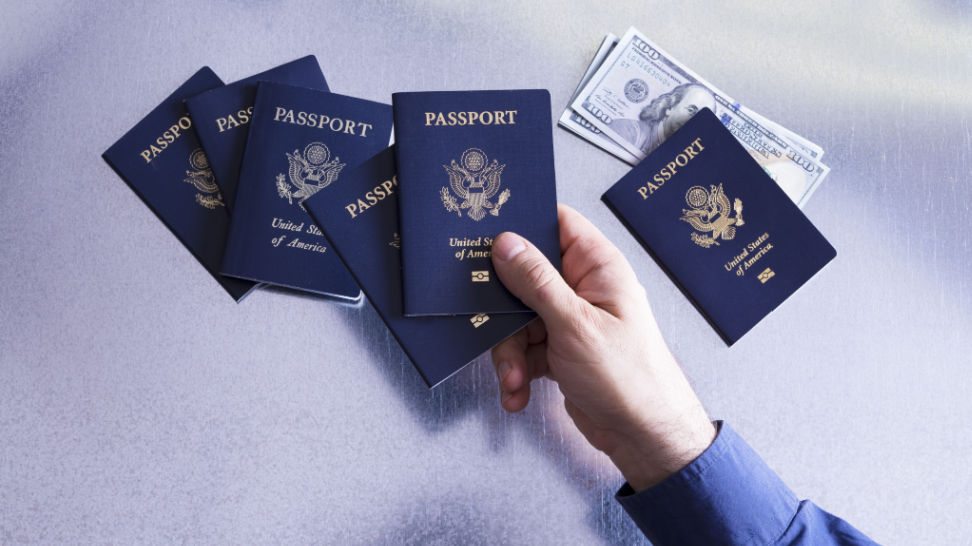A strong asset protection strategy uses a variety of techniques to shield the assets of high-net-worth individuals from potential creditors. One of the more popular methods is opening an offshore account in a foreign jurisdiction that has a regulatory framework suitable for asset protection needs.
The following offshore banking guide from our team at Blake Harris Law, a nationwide asset protection law firm, should provide you with some of the information you need to determine whether an offshore bank account should be a part of your asset protection plan.
What Is Offshore Banking?
Offshore banking broadly refers to any type of banking in a jurisdiction outside your home country. Most banks in countries that offer offshore banking do not have branches within your home country and are not subject to that country’s court jurisdiction.
Is Offshore Banking Legal?
Yes, offshore banking is legal. While many tend to associate offshore banking systems with money laundering, tax evasion, and illicit transactions, most offshore banks provide services that are completely legal and beneficial to numerous individuals and companies.
The best way to make sure that you’re not breaking any laws while taking advantage of foreign banks is to work with a knowledgeable asset protection firm responsible for maintaining offshore accounts while ensuring they remain compliant with local and international banking regulations.
Do Offshore Bank Accounts Receive Tax Exemptions?

Many jurisdictions that are well-known offshore banking centers, such as Belize, the Cook Islands, St. Kitts, and Nevis, the Cayman Islands, the Isle of Man, Jersey, and the Bahamas, are also tax havens. These countries have low or no taxes, including capital gains, inheritance, value-added, gift, or corporate taxes on foreign accounts and trusts. Their tax benefits make them ideal for reducing your tax burden when investing money abroad.
Examples of Offshore Accounts
As with domestic banks, international banks offer several options when you open an offshore account. These vary in scope and purpose, and choosing the type of account that works best for your financial situation and goals is vital.
Checking Account
Checking accounts allow individual and corporate account holders to operate globally and receive worldwide income in a safe space. International checking accounts work similarly to domestic checking accounts, where account holders can use paper or electronic means to make and receive payments. Most have a minimum deposit when opening the account, and the account holder must maintain a minimum balance to keep the account open.
Overseas businesses will often open accounts in offshore jurisdictions to take advantage of favorable interest rates and ease the burden of dealing with multiple currencies. Many offshore bank accounts also provide debit cards and access to online banking, which allows companies to operate globally.
Basic Savings Account
Unlike checking accounts, which excel at providing basic banking and financial services, savings accounts are an option for individuals looking for low-risk savings options. A basic savings account lets you deposit a certain minimum amount and make subsequent deposits at any time.
Banks will offer interest rates that will accumulate based on the type of savings account and its risk profile. Typically, basic and demand-deposit savings accounts have lower rates but offer more flexibility in depositing and withdrawing funds.
Term Deposit Account
Term deposit accounts are international investment accounts into which individuals deposit funds and leave them within that account for an agreed-upon term. The money in the account accrues interest over the term, which the bank pays out when the term of the account expires, along with the initial funds.
Generally, term deposit accounts have higher interest rates than basic or demand deposit accounts, and many local banks will allow you to roll over the account into another term deposit account when your term expires. While savings accounts are not as profitable as other investment vehicles, they provide stability and an excellent way to keep money offshore.
International Investment Account
Foreign financial accounts can provide exciting investment opportunities, with tax benefits and a reasonable rate of return. These accounts create an investment portfolio that stays separate from any investments in a domestic bank and will often have beneficial tax rates and administration fees.
These accounts are an excellent asset protection mechanism, especially in countries with strong privacy laws and immunity from home country court judgments.
Reasons To Consider an Offshore Bank Account

The most common reasons why individuals and companies open an international account include the following:
Asset Protection: High-net-worth individuals are at risk from spurious lawsuits, foreclosing lenders or creditors collecting on outstanding debts. Having money in offshore bank accounts makes certain assets difficult to access.
A startling statistic is that while the U.S. makes up only 4.4% of the world’s population, 80% of the world’s lawyers operate in the United States, dealing with the highest number of civil cases in the western world.
This is why having an asset protection plan is essential for anyone in a high-risk category. Banking offshore is typically one aspect of a more comprehensive asset protection strategy.
Ability to Finance Litigation: U.S. federal agencies such as the Department of Justice, Federal Trade Commission, and Securities and Exchange Commission have the power to freeze assets in an individual’s domestic account as part of an ongoing investigation. This leaves individuals with the unenviable position of having to hire an attorney without any funds.
Having money offshore reduces this concern, as federal agencies may only freeze assets within the home country.
Currency Diversification: Domestic banks tend to operate in the home country’s currency, which may limit the ability of larger companies to conduct global business. Many offshore funds allow for multiple currencies, allowing for diversification and the ability to perform in the global financial market while also taking advantage of fluctuating foreign currency markets.
Tax Advantage: One of the easiest ways for a foreign country to attract outside investment is to offer tax incentives to investors, which often create favorable conditions compared to investing in your home country.
However, while countries like the Cayman Islands may shield corporations from a high domestic tax burden, they do not offer an opportunity to avoid paying taxes altogether. You will still need to declare any profits on your foreign bank account to the local tax authorities.
Privacy: Many countries that provide offshore banking services will have laws enforcing banking confidentiality and privacy, allowing investors to conduct their activities more effectively. However, certain information remains confidential only so long as these offshore bank accounts are not involved in illegal activities, such as tax evasion, trafficking, or money laundering.
Potential Drawbacks of Opening an Offshore Bank Account

While an offshore bank account can be an excellent addition to your asset protection plan, the option may not be suitable for all situations. Offshore accounts also have drawbacks that you must consider before opening an offshore bank account.
Growing Regulatory Scrutiny
Many unscrupulous individuals and companies use offshore banks to evade taxes and conduct illicit activities. The U.S government has taken notice and has started to create regulations around offshore investment revenue, such as the Foreign Account Tax Compliance Act, which requires U.S citizens to disclose any foreign account holdings.
As the IRS continues to focus more on ensuring that taxpayers pay the correct taxes on their income, regardless of source, offshore accounts may become less appealing in the future.
Cost
Setting up an offshore account requires money as well as effort. The preferred method to use offshore banks as asset protection mechanisms is to create a corporation that holds an account at the offshore local bank, leading to legal, administrative, and registration fees.
Also, many offshore accounts require a relatively high first deposit, which may not be within everyone’s means. In addition to the company formation cost, you will also need to consider monthly maintenance fees as an ongoing expense.
How To Open an Offshore Bank Account

If you decide to bank offshore, it’s vital to consult with experts who understand how to open and administer an offshore banking account and operate within an international banking system. Complying with local regulations is essential to staying on the right side of the law.
The basic process that most offshore banking clients follow when opening up an account with a foreign financial institution involves the following:
- Locating a suitable foreign bank that allows U.S. citizens to open a bank account
- Determining the bank’s fee structure and assessing the bank’s accessibility
- Completing the bank application, including providing the necessary due diligence documents
- Transferring funds from the current bank account to the foreign bank account
Factors to Consider When Choosing an Offshore Bank
Opening an offshore account is frequently a financial decision with serious consequences, so it’s vital to conduct the necessary research before starting your offshore banking journey. Factors to consider include:
- Language: While most countries offering offshore banking conduct their business in English, it’s important to make sure you can communicate effectively with the bank staff.
- Reputation: You need to work with a bank that provides a stable and secure environment for your transactions. Reading customer reviews and testimonials may give you an idea of the level of service you’ll get, but we also recommend talking to an experienced professional for their opinion.
- Banking services: People open an offshore account for many purposes, so be sure to ask the bank whether they can provide the appropriate service for your needs.
- Initial deposit amount: Initial deposit amount: Many offshore banks require relatively large sums to open an account, ranging from $100,000 to over $1 million. You may need to shop around to find a bank that offers a deposit you can pay. However, some offshore bank accounts can be opened with as little as $1,000.
- Security and privacy: Banks in various jurisdictions have their own rules and regulations surrounding privacy and security. For instance, Swiss banks must protect the confidentiality of their account holders. Many countries will not have extra-judicial treaties with the United States, making them secure asset protection vehicles.
- Financial services compensation scheme: Many banks within the United Kingdom and European Union offer an FSCS, which insures account holders against bank, building society, or credit union insolvency.
Criteria for Opening an Offshore Bank Account

Individuals
Individuals opening an offshore bank need to provide the following documents:
- A passport copy
- An up-to-date picture
- Proof of address
- A completed W9 form for U.S. citizens
- A completed W-8BEN form for non-U.S. citizens
Businesses
If you want to open an offshore account as a corporation, you’ll need to provide the following:
- A copy of your certificate of incorporation
- A certificate of good standing in the jurisdiction of company formation
- Evidence of ownership or control of the business
- A passport copy from everyone who controls or owns the business
- A company resolution with the names of people authorized to act on behalf of the business
- A completed W-8BEN form
What Countries Offer Offshore Banking?
Most countries offer some form of offshore banking, but some are notable due to their friendliness towards offshore investors. The countries that offer some of the more advantageous offshore options include:
- Hong Kong
- Switzerland
- Belize
- Germany
- Isle of Man
- The Cayman Islands
- Singapore
- Panama
- The Island of Nevis
- Mauritius
Who Benefits From an Offshore Banking Account?

While offshore banking has a reputation for being exclusively for high earners, it offers advantages for many other individuals. Here are some of the types of individuals who may benefit from having an overseas bank account:
- High earners looking for asset protection and favorable returns on investment
- Moderate earners looking to invest and accrue money
- Individuals looking to diversify their portfolio and take advantage of investment options not available in their country of residence
- Potential immigrants looking to move to the country in which they have an offshore account
- International business owners looking to reduce their tax liability and protect their assets
Contact an Asset Protection Attorney
When dealing with the complexities of offshore banking accounts, you will benefit from the advice of an asset protection attorney. Contact our team at Blake Harris Law today.


